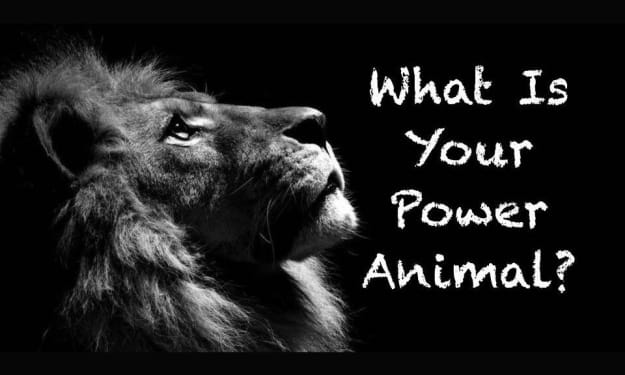
Certainly! Being a woman encompasses various aspects, including biological, social, cultural, and psychological dimensions. Here is a general overview of some key aspects of being a woman:
Biological aspects: Women have unique biological features that differentiate them from men. These include reproductive organs such as ovaries, fallopian tubes, uterus, and breasts. The menstrual cycle, pregnancy, childbirth, and menopause are significant biological events that women experience.
Gender identity: Gender identity refers to a person's internal sense of being male, female, or non-binary. While biological sex is assigned at birth, gender identity is a deeply personal and subjective experience. It's important to acknowledge that not all individuals assigned females at birth identify as women.
Social and cultural perspectives: Women's experiences are shaped by social and cultural factors. Societal expectations, gender roles, and stereotypes influence how women are perceived, treated, and interact within different communities and cultures. Issues such as gender equality, women's rights, and women's empowerment are central to discussions on being a woman.
Health considerations: Women have unique health needs throughout their lives. Gynecological and reproductive health, breast health, and hormonal changes are key areas of focus. Women may also face specific health challenges such as cervical cancer, breast cancer, osteoporosis, and autoimmune disorders that require specialized care and attention.
Psychological well-being: The psychological aspects of being a woman involve emotional, cognitive, and behavioral factors. Women may navigate societal pressures, body image concerns, and mental health challenges that can impact their overall well-being. It is essential to prioritize mental health and seek support when needed.
Intersectionality: Being a woman intersects with other aspects of an individual's identity, such as race, ethnicity, sexual orientation, and socioeconomic status. Intersectionality recognizes that the experiences of women are shaped by multiple social identities and that the challenges faced by women can vary significantly depending on these intersecting factors.
Here are some additional details on various aspects of being a woman:
Women's Reproductive Health: Women's reproductive health encompasses a range of topics, including menstrual health, contraception, fertility, pregnancy, childbirth, and menopause. Understanding the menstrual cycle, different contraceptive options, fertility considerations, and the physical and emotional changes during pregnancy and menopause are all important aspects of women's reproductive health.
Gender Equality and Women's Rights: Gender equality is fundamental to being a woman. Advocating for equal rights and opportunities, challenging gender stereotypes and biases, and addressing issues like gender-based violence, workplace discrimination, and women's empowerment are key focuses within the realm of gender equality and women's rights.
Body Image and Self-Esteem: Body image concerns can significantly impact women's well-being. Societal pressures, media influences, and cultural expectations often shape perceptions of beauty and attractiveness. Developing a healthy body image and cultivating self-esteem involves promoting self-acceptance, embracing diversity, and challenging unrealistic beauty standards.
Mental Health: Women can face unique mental health challenges, including depression, anxiety, eating disorders, and postpartum depression. Hormonal fluctuations, life transitions, societal pressures, and gender-specific experiences contribute to these challenges. Prioritizing mental health, seeking support, and fostering emotional well-being are crucial aspects of being a mentally healthy woman.
Women in Leadership and Careers: Women's participation in leadership roles and careers has gained increasing attention. Addressing barriers to women's advancement, promoting gender diversity in various industries, and encouraging women to pursue their career aspirations are significant aspects of women's experiences in the professional realm.
Intersectionality and Diversity: Recognizing the intersectionality of being a woman is essential. Women come from diverse backgrounds, including different races, ethnicities, religions, and sexual orientations. Understanding and addressing the unique experiences and challenges women of different identities face is important in promoting inclusivity and equality.
Here's a more in-depth exploration of various aspects related to being a woman:
Biological Aspects:
Female Reproductive System: The female reproductive system includes the ovaries, fallopian tubes, uterus, cervix, and vagina. Understanding the functions of these organs, the menstrual cycle, ovulation, and fertility can provide insights into women's reproductive health.
Menstruation: Menstruation is a natural process that involves the shedding of the uterine lining and the release of an egg. Exploring topics such as menstrual hygiene, common menstrual disorders, and managing menstrual symptoms can help in understanding this aspect of being a woman.
Pregnancy and Childbirth: Pregnancy involves developing and nurturing a fetus in the womb, leading to childbirth. Learning about the stages of pregnancy, prenatal care, labor, delivery, and postpartum recovery can provide comprehensive knowledge of this transformative experience.
Menopause: Menopause marks the end of a woman's reproductive years. Understanding the physical and hormonal changes associated with menopause, as well as managing symptoms and promoting overall well-being during this transition, is important.
Social and Cultural Perspectives:
Gender Roles and Stereotypes: Gender roles and stereotypes influence societal expectations placed on women. Exploring how these expectations vary across cultures and historical contexts can shed light on the diverse experiences of women.
Women's Rights Movements: Learning about historical and contemporary women's rights movements can provide insights into the fight for gender equality, suffrage, reproductive rights, and other important aspects of women's empowerment.
Intersectionality: Intersectionality recognizes that being a woman intersects with other identities and social factors, such as race, ethnicity, class, and sexual orientation. Exploring the unique experiences and challenges faced by women of different backgrounds can promote inclusivity and understanding.
Health Considerations:
Breast Health: Understanding breast anatomy, performing self-examinations, and being aware of breast health screenings and potential issues like breast cancer can help women take proactive steps for their well-being.
Gynecological Health: Topics such as routine gynecological check-ups, sexually transmitted infections (STIs), contraception options, common gynecological conditions (e.g., endometriosis, polycystic ovary syndrome), and cervical health (including Pap smears and HPV vaccination) are crucial for maintaining women's reproductive health.
Mental Health: Women may experience mental health conditions such as depression, anxiety, and eating disorders. Exploring the signs, symptoms, treatment options, and strategies for promoting mental well-being can be beneficial.
Empowerment and Personal Development:
Leadership and Careers: Women's participation in leadership roles, career advancement, and breaking gender barriers in traditionally male-dominated fields are important aspects to explore. Topics like negotiating skills, mentorship, work-life balance, and promoting women's career growth are relevant here.
Self-Care and Self-Expression: Exploring self-care practices, promoting positive body image, cultivating self-esteem, and embracing one's individuality and self-expression can contribute to a woman's overall well-being and empowerment.
I want to express my heartfelt gratitude for reading my article. Your appreciation and support mean the world to me. Knowing that my words resonated with you is incredibly rewarding and motivates me to continue sharing my insights. Your kind words encourage me to explore new topics and delve deeper into subjects that matter. Thank you for taking the time to read and appreciate my work. Your support inspires me to keep creating meaningful content. I value your feedback and look forward to sharing more knowledge with you. Thank you once again for your unwavering support.
About the Creator
Jemimah Mshelia
I am a curious, empathetic, and creative individual, constantly seeking to learn, grow, and connect with others. I embrace challenges as opportunities for growth and strive to make a positive difference in the lives of those around me.





Comments
There are no comments for this story
Be the first to respond and start the conversation.